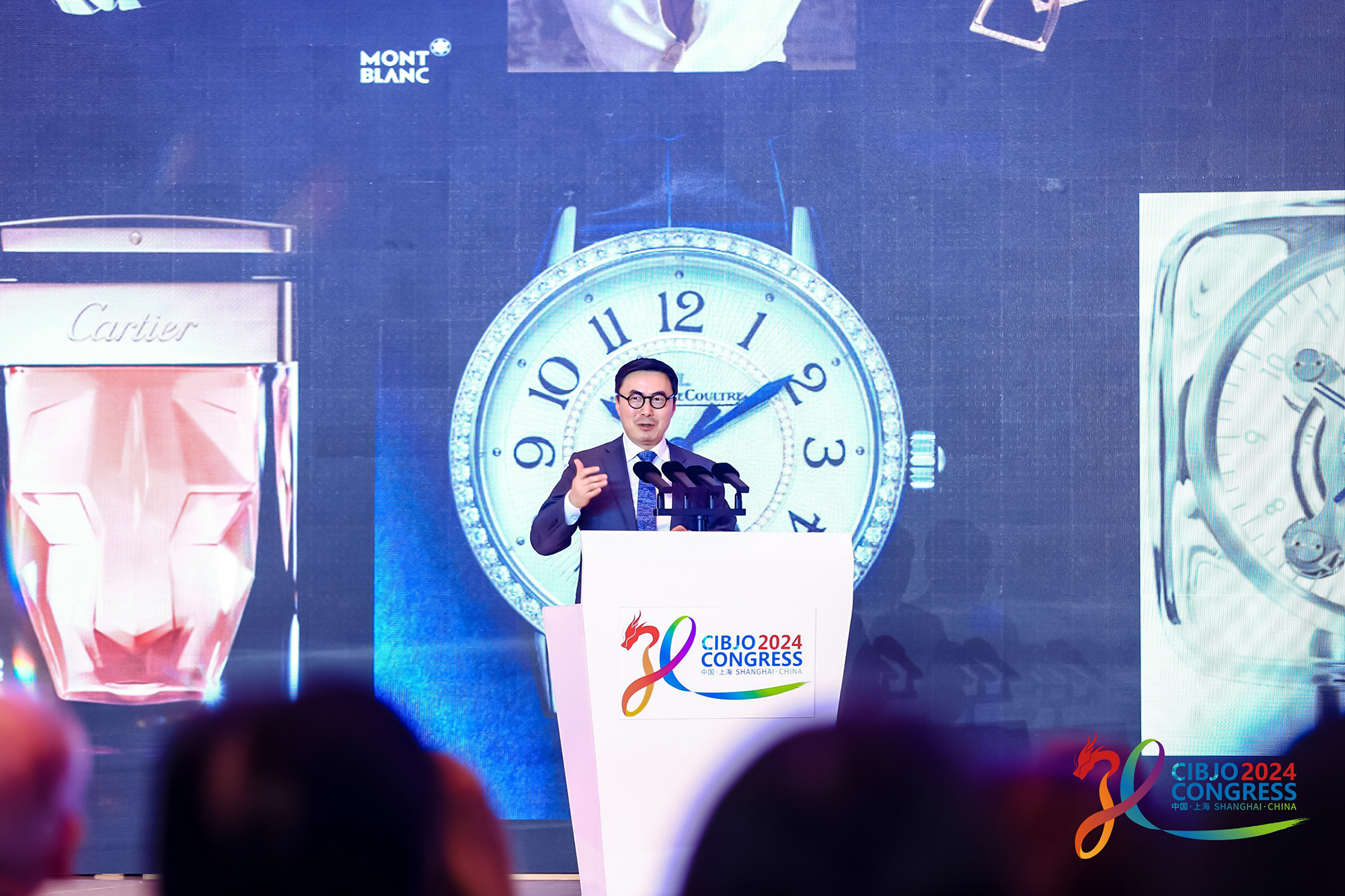Jewellery education is first step towards innovation,
Italian academic tells congress in special session

Professor Yongqi Lo, Vice President of Tongji University, addressing the special session of university-level education in jewellery design, held on the first day of the 2024 CIBJO Congress, moderated by Preofessor Alba Cappallieri, Head of Jewellery and Fashion Accessories at the Polytechnico Milano.
NOVEMBER 2, 2024
Jewellery education is the first step towards innovation and should be driven by industry in partnership with schools and universities around the world, a senior Italian academic and jewellery historian Alba Cappellieri said at the CIBJO Congress which on the opening day hosted a presentation about jewellery courses at Chinese universities.
“There cannot be any innovation without education, so my message is: Try to establish a connection and a bridge between the industry and the schools and universities, to provide innovation, sustainable growth, and any kind of messages the industry wants to give to the future generations,” said Professor Cappellieri, who is associate professor of jewellery design and Head of Jewellery and Fashion Accessories at the Polytechnico Milano, a world-leading design institution.
“It is the first time that CIBJO, the World Jewellery Confederation, has put together universities and schools at the same table talking about the future. The future starts from the schools,” Professor Cappellieri said.
The session at the CIBJO Congress, curated by Professor Cappellieri, featured presentations by Chinese universities on different approaches to education in gems, craftsmanship and jewellery design. Among the presenters were Olivier Segura, whose L’Ecole School of Jewellery Arts is supported by Van Cleef and Arpels, and which operates five campuses, among them facilities in Hong Kong and Shanghai. Also participating were Professor Zang Yingchun of Tsinghua University, Prof. Yongqi Lou, Vice President of Tongji University, Professor Zang Fan of the Central Academy of Fine Arts in Beijing, and Professor Yi Zhao of the Beijing Institute of Fashion Technology (BIFT).
In her presentation, Professor Zhang Fan, spoke of how AI is profoundly driving forward jewellery design and education, and discussed new teaching methods focused on design.
Chinese students have a wide choice of Chinese universities for the study of jewellery design. Some opt to learn their crafts skills abroad, for example in jewellery design schools in Italy, notably in Milan, or in the United Kingdom, mainly in London and Birmingham.
Jewellery manufacturers in countries such as Italy, Turkey and the UK have voiced fears that many craftspeople are ageing, amid difficulties to attract young people into the jewellery industry, which is competing with other sectors in luxury, such as travel.
At the same time, the advancements of AI applied to manufacturing, have raised the possibility that job opportunities in jewellery design may diminish, with AI capable of turning jewellery design concepts into viable design options in seconds.
Manufacturers in leading jewellery supply hubs have spoken of the need for the industry to create design and craft training opportunities for younger people, and say that partnerships between schools, universities and industry will be the way forward.
